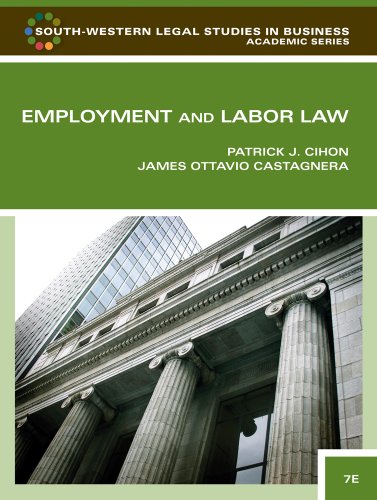Plaintiff owned and operated a supermarket in Springfield, Missouri. The defendant union neither represented, nor did it
Question:
Plaintiff owned and operated a supermarket in Springfield, Missouri. The defendant union neither represented, nor did it claim to want to organize, the supermarket’s clerks. Nevertheless, the union sporadically picketed the supermarket, claiming that the impetus for its picketing was that the supermarket paid substandard wages.
Initially, the union picketed in the public street, but subsequently, it moved onto the supermarket’s sidewalk. After the supermarket filed a trespass complaint with the local police, the pickets moved back to the street but simultaneously filed an unfair labor practice charge with the NLRB. The Board issued a complaint, asserting that the supermarket violated Section 8(a)(1) of the NLRA by ordering the pickets off the sidewalk.
The supermarket’s owners initiated a lawsuit, seeking an injunction to keep the pickets off the sidewalk and also to stop other alleged picketing activities. The plaintiffs alleged that the pickets called customers “scab shoppers,” took down license numbers of customers’ cars, and misstated on their placards that the plaintiff was an Arizona company, coming in from out of state, when in fact it was a Missouri corporation.
In what kind of picketing was the union engaging? What was the theory on which the NLRB issued its complaint on behalf of the union, and how do you think it will fare before an administrative law judge?
Does the issuance of that complaint by the Board preempt the Missouri state court from enjoining any of the picketers’ activities? All of their activities? Is your answer any different if the Section 8(a)(1) charge is ultimately sustained by the ALJ who hears the case? See Smitty’s Super Markets v.
Local 322 [637 S.W.2d 148, 116 L.R.R.M. 3393 (Missouri Ct. Apps. (1982)].
Step by Step Answer:

Employment And Labor Law
ISBN: 9781439037270
7th Edition
Authors: Patrick J. Cihon , James Ottavio Castagnera





